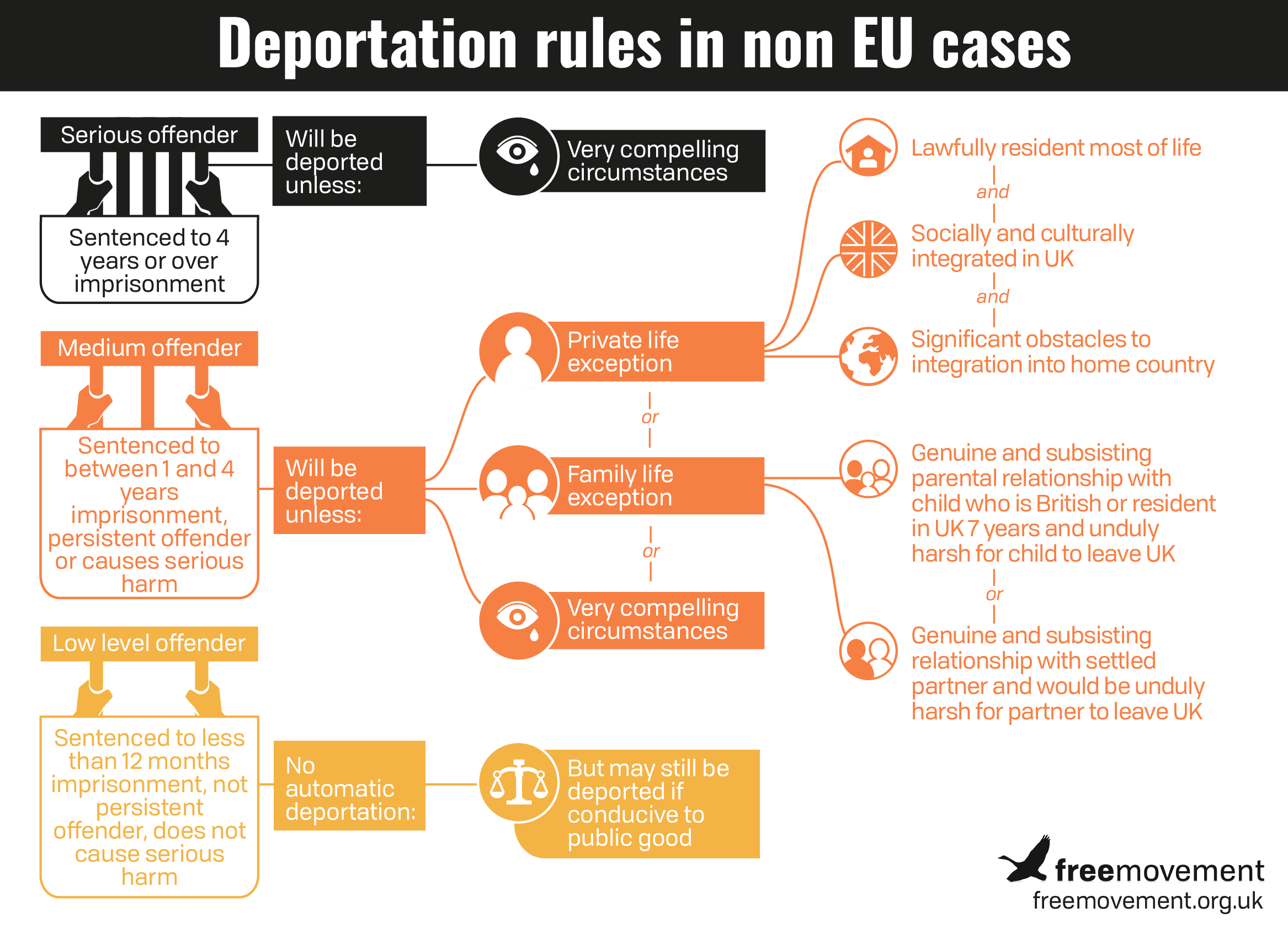- BY Nick Nason

The comeback continues: Court of Appeal blocks another deportation
THANKS FOR READING
Older content is locked

A great deal of time and effort goes into producing the information on Free Movement, become a member of Free Movement to get unlimited access to all articles, and much, much more
TAKE FREE MOVEMENT FURTHER
By becoming a member of Free Movement, you not only support the hard-work that goes into maintaining the website, but get access to premium features;
- Single login for personal use
- FREE downloads of Free Movement ebooks
- Access to all Free Movement blog content
- Access to all our online training materials
- Access to our busy forums
- Downloadable CPD certificates
In KB (Jamaica) v Secretary of State for the Home Department [2020] EWCA Civ 1385 the Court of Appeal followed the recent decisions of HA (Iraq) v SSHD [2020] EWCA Civ 1176 and AA (Nigeria) v SSHD [2020] EWCA Civ 1296 on the interpretation of the “unduly harsh” test in deportation cases.
The case involved the appeal of a Jamaican man who was convicted of a number of offences, most seriously a conviction for assault in 2014 for which he received a 12-month sentence and became liable to deportation.
In the appeal against the Home Office’s decision to deport him he was successful before the First-tier Tribunal in October 2017. The first-instance judge found that it would be unduly harsh on his four children – all of school age, and with whom he had genuine and subsisting relationships – for KB to be deported. The tribunal recorded detailed findings
relating to the role of KB in the children’s lives and the effect which his deportation would have on them, which demonstrated the significant educational, psychological and emotional harm which would be caused by separation from a hands on father and role model who played an important part in the daily lives of the children.
The decision of the First-tier Tribunal was set aside in 2019 by the Upper Tribunal on the basis that it contained an error of law, and that the unduly harsh test had not been correctly applied. The decision was remade, and KB’s appeal dismissed, the Upper Tribunal finding that the impact on the children would not be “unduly harsh”.

Although not expressly stated in this judgment, the Upper Tribunal was no doubt applying the KO (Nigeria) v SSHD [2018] UKSC 53 test for what is “unduly harsh” prior to its reimagining in HA (Iraq). The test had previously presented an extremely high bar to appellants in deportation hearings.
In his appeal against the findings of the Upper Tribunal, KB argued that there was nothing wrong with the original tribunal finding in his case, way back in October 2017, and that it should be restored. The Court of Appeal agreed.
Although the case broke no new legal ground, Lord Justice Popplewell – who had also provided the lead judgment in AA (Nigeria) – summarised where we are with the unduly harsh test at para 15:
(1) The unduly harsh test is to be determined without reference to the criminality of the parent or the severity of the relevant offences: KO (Nigeria) para 23, reversing in this respect the Court of Appeal’s decision in that case, reported under the name MM (Uganda) v Secretary of State for the Home Department [2016] EWCA Civ 617, in which at paragraph 26 Laws LJ expressed this court’s conclusion that the unduly harsh test required regard to be had to all the circumstances including the criminal’s immigration and criminal history.
(2) “Unduly” harsh requires a degree of harshness which goes beyond what would necessarily be involved for any child faced with deportation of a parent: KO (Nigeria) para 23.
(3) That is an elevated test, which carries a much stronger emphasis that mere undesirability or what is merely uncomfortable, inconvenient, or difficult; but the threshold is not as high as the very compelling circumstances test in s. 117C(6): KO (Nigeria) para 27; HA (Iraq) paras 51-52.
(4) The formulation in para 23 of KO (Nigeria) does not posit some objectively measurable standard of harshness which is acceptable, and it is potentially misleading and dangerous to seek to identify some “ordinary” level of harshness as an acceptable level by reference to what may be commonly encountered circumstances: there is no reason in principle why cases of undue hardship may not occur quite commonly; and how a child will be affected by a parent’s deportation will depend upon an almost infinitely variable range of circumstances; it is not possible to identify a base level of “ordinariness”: HA (Iraq) paras 44, 50-53, 56 and 157, AA (Nigeria) v Secretary of State for the Home Department [2020] EWCA Civ 1296 at para 12.
(5) Beyond this guidance, further exposition of the phrase will rarely be helpful; and tribunals will not err in law if they carefully evaluate the effect of the parent’s deportation on the particular child and then decide whether the effect is not merely harsh but unduly harsh applying the above guidance: HA (Iraq) at paras 53 and 57. There is no substitute for the statutory wording (ibid at para 157).
And so the comeback continues.
SHARE

